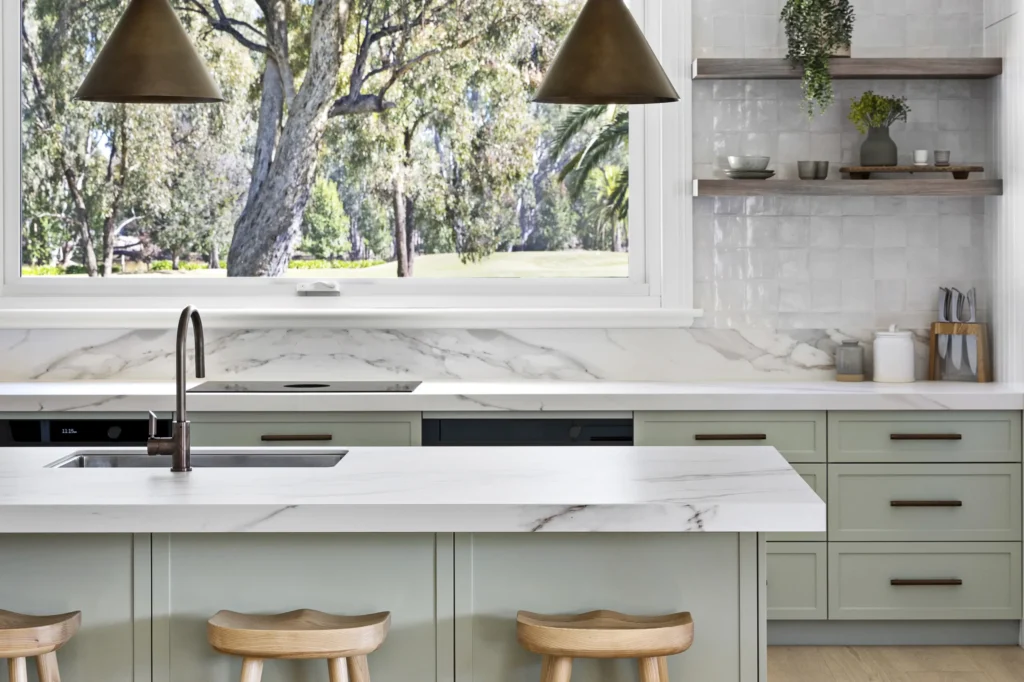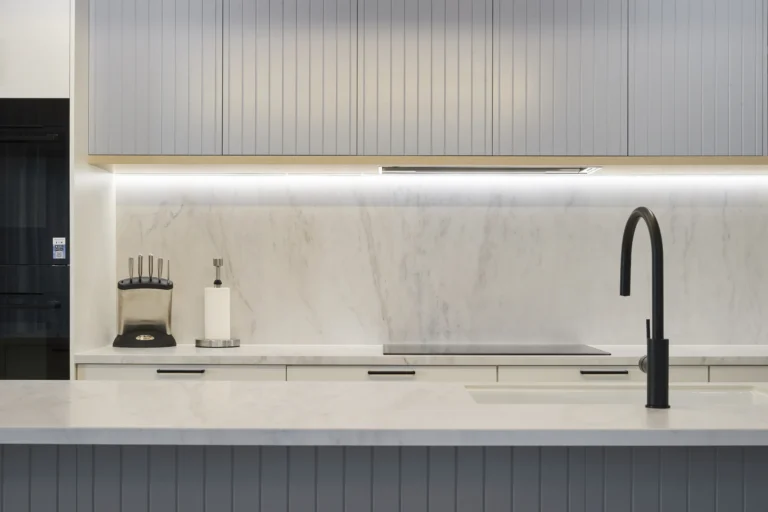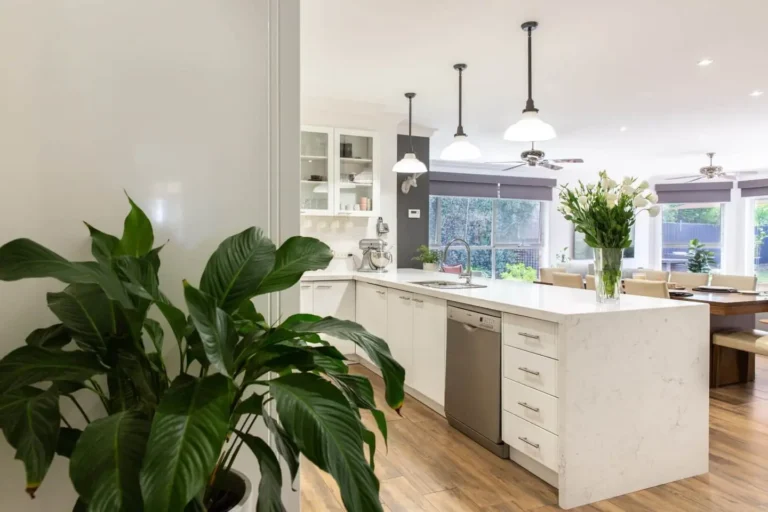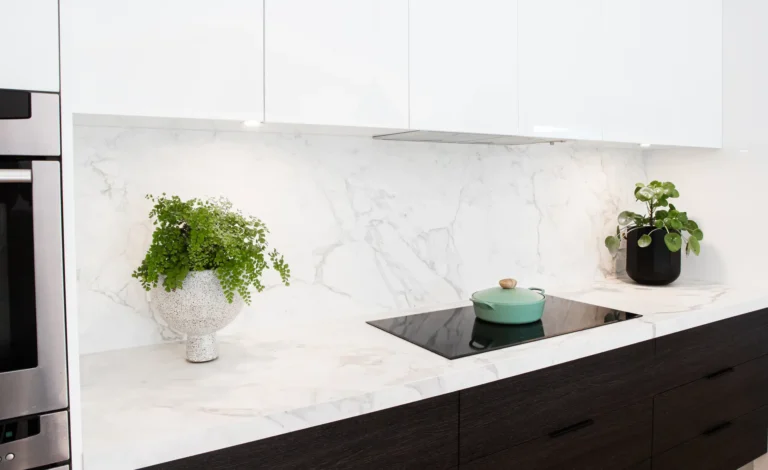What Our Real-World Tests Reveal About Porcelain Benchtops
Porcelain benchtops are a top choice for Melbourne homeowners, offering durability, heat resistance, and versatile designs. Like any material, they come with pros and cons that are important to consider before making a decision.
At United Stone Melbourne, we’ve worked with every major benchtop material, including granite, marble, quartzite, and dolomite. To help you compare, we’ve conducted rigorous tests, including blowtorch trials and stain tests with food dye and permanent markers, to see how porcelain performs in real-world scenarios. Many of these tests are featured on our YouTube channel, so you can see the results for yourself.
With over 30,000 installations, 20+ years of experience, and 400+ 5-star reviews on Google, we’re proud to be Melbourne’s trusted experts in premium benchtop solutions. Learn more about our porcelain benchtop services and explore why this material is the ultimate choice for your home.
This guide explores the pros and cons of porcelain benchtops, backed by real-world results and comparisons to other natural stones.
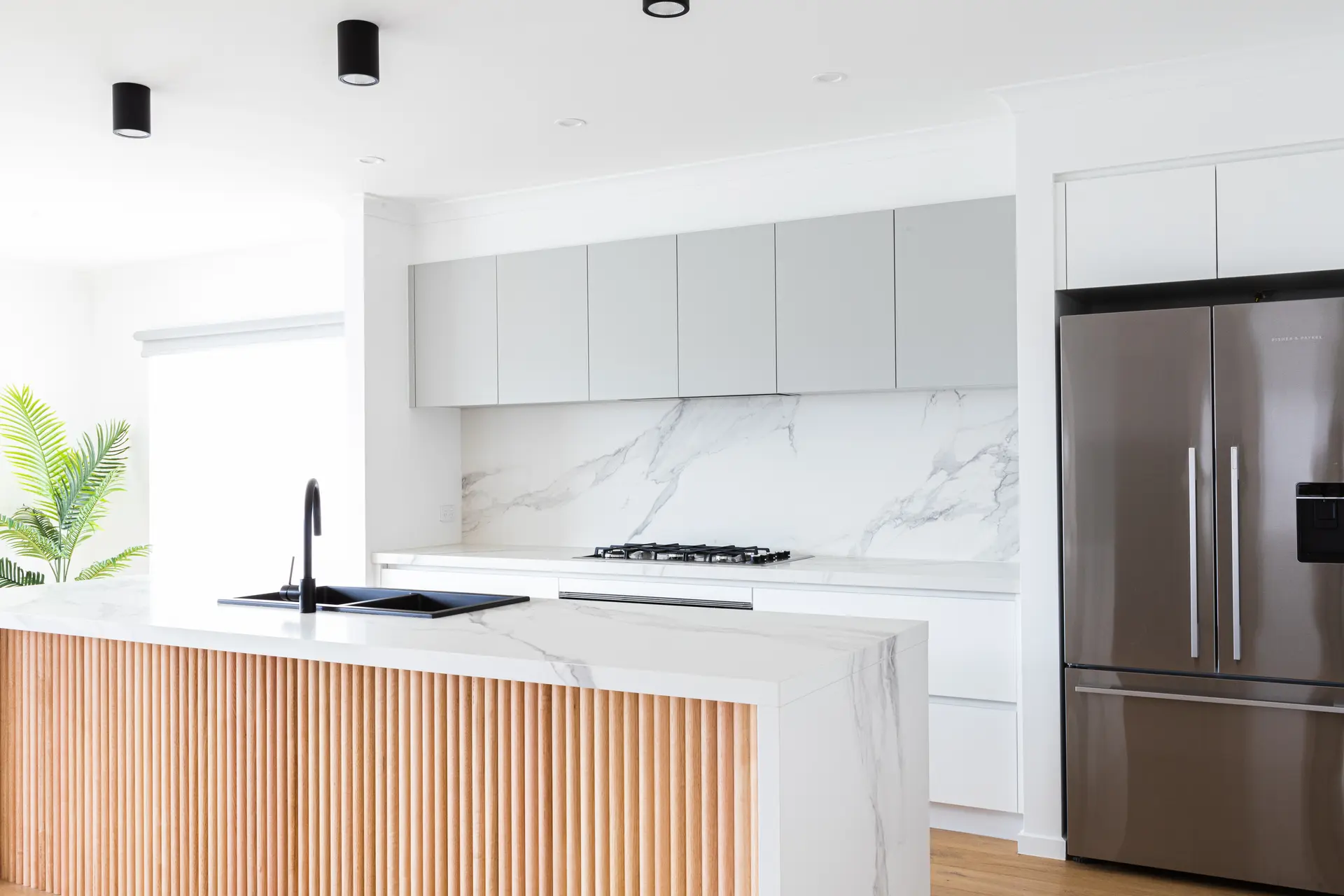
Pros of Porcelain Benchtops
1. Heat Resistant
Porcelain can withstand extreme heat without warping or cracking.
The Data Behind It
Fired at over 1,200°C during manufacturing, porcelain can handle high temperatures, such as hot pots and pans, without damage. In our blowtorch tests, it remained unaffected, outperforming materials like granite and quartzite.
2. Stain Resistant
Porcelain resists stains from food, wine, and oils.
The Data Behind It
With a water absorption rate of less than 0.5%, porcelain resists stains better than natural stones like granite and marble, which are more porous and prone to discoloration.
3. Scratch Resistant
Porcelain resists everyday scratches from knives, cookware, and other household items.
The Data Behind It
Scoring 6–7 on the Mohs hardness scale, porcelain is comparable to granite and significantly harder than marble, making it an excellent choice for high-use kitchens.
4. Durable
Porcelain resists chips, cracks, and heavy impacts better than most materials.
The Data Behind It
Engineered for strength, porcelain withstood up to 2.5x more impact force in testing compared to marble, while performing similarly to granite.
5. UV Resistant
Porcelain maintains its colour and finish even with prolonged exposure to sunlight.
The Data Behind It
Its UV resistance makes it ideal for outdoor spaces, outperforming quartz, which can fade, and some granites, which may darken over time.
6. Low Maintenance
Porcelain requires no sealing or polishing—just soap and water.
The Data Behind It
Unlike granite and marble, which require regular sealing to maintain stain resistance, porcelain’s non-porous surface eliminates the need for such maintenance, saving time and money over its lifespan.
7. Design Versatility
Porcelain mimics natural stone, wood, and concrete with advanced printing technology.
The Data Behind It
High-resolution digital printing allows porcelain to replicate marble veining or wood grain with 99% accuracy, offering more consistent and varied design options than natural stone.
8. Eco-Friendly
Porcelain is recyclable, silica-free, and free of harmful chemicals.
The Data Behind It
Made from natural clay and feldspar, porcelain is a sustainable choice that avoids the resins and petrochemicals found in engineered stone, making it an environmentally friendly option.

Cons of Porcelain Benchtops
1. Pricing
Porcelain is a premium material, but its price point is competitive with many natural stones.
The Data Behind It
While porcelain costs more than entry-level materials like laminate, it’s often on par with granite and quartz and can even be more affordable than high-end marbles or quartzite. For homeowners seeking durability and low maintenance, porcelain delivers exceptional long-term value, making it a worthwhile investment.
For a full breakdown of porcelain benchtop prices, including custom features like splashbacks and waterfall edges, click here to read our detailed guide.
2. Limited Edge Profiles
Porcelain’s thin slabs restrict intricate edge designs like deep ogee or bullnose.
The Data Behind It
Porcelain’s standard thickness of 12mm limits its ability to achieve highly decorative edges. However, professional reinforcement techniques, such as mitred edges, allow for modern and seamless profiles that pair perfectly with contemporary kitchen designs.
3. Specialised Installation
Professional installation is required to ensure precision and prevent damage.
The Data Behind It
Porcelain’s density and thin profile require specialised tools for cutting and adhesives during installation. With expert handling, 12mm slabs are securely fitted, avoiding cracks or misalignment. Installation may take 20–30% longer than granite or marble, but the results deliver a flawless and durable finish.
4. Prone to Chipping
Porcelain edges require thoughtful design and professional installation to minimise the risk of chipping.
The Data Behind It
While 12mm porcelain slabs are highly durable overall, their edges can be more vulnerable to chipping if not installed or finished properly. Key considerations include:
- Reinforced edges (e.g., a 40mm mitred edge) significantly improve durability by distributing force and reducing weak points, making the surface 2–3x more resistant to chips compared to untreated edges.
- For thin or unreinforced edges, precise polishing is critical to smooth out sharp or exposed surfaces, which are more prone to damage.
- Chips, if they occur, can usually be repaired professionally.
When installed by experienced professionals like United Stone Melbourne, these risks are minimised, resulting in a durable and long-lasting finish.
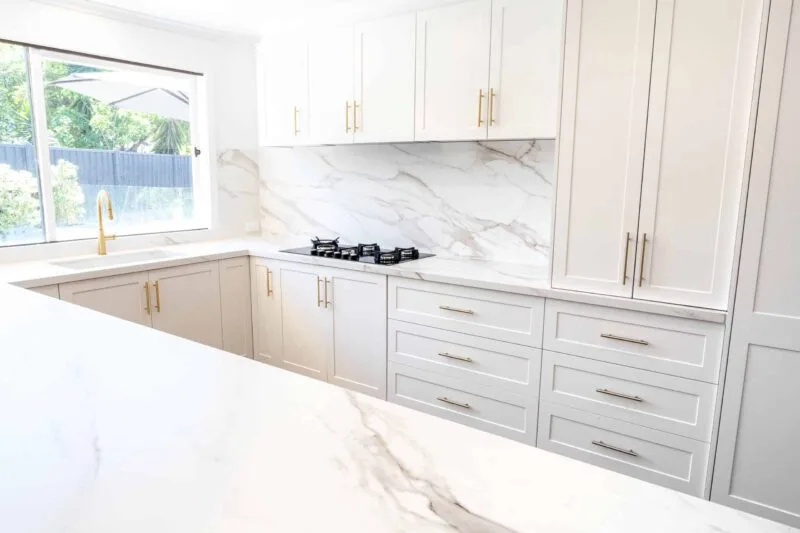
Conclusion: Why Porcelain Benchtops Are the Ultimate Choice
Porcelain benchtops deliver exceptional value for homeowners who prioritise durability, style, and low maintenance. From withstanding extreme heat to resisting scratches and stains, porcelain consistently outperforms many natural stones in real-world scenarios.
At United Stone Melbourne, we bring over 20 years of experience, 30,000 successful installations, and 400+ 5-star reviews on Google to every project. As Melbourne’s trusted experts in premium benchtop solutions, we use advanced techniques like reinforced edge profiles to ensure your porcelain benchtop is as durable as it is beautiful.
Ready to transform your kitchen or outdoor space? Contact us today for expert advice, or explore our YouTube videos to see how porcelain performs in action. Learn more about our porcelain benchtop services and find the perfect solution for your home.


